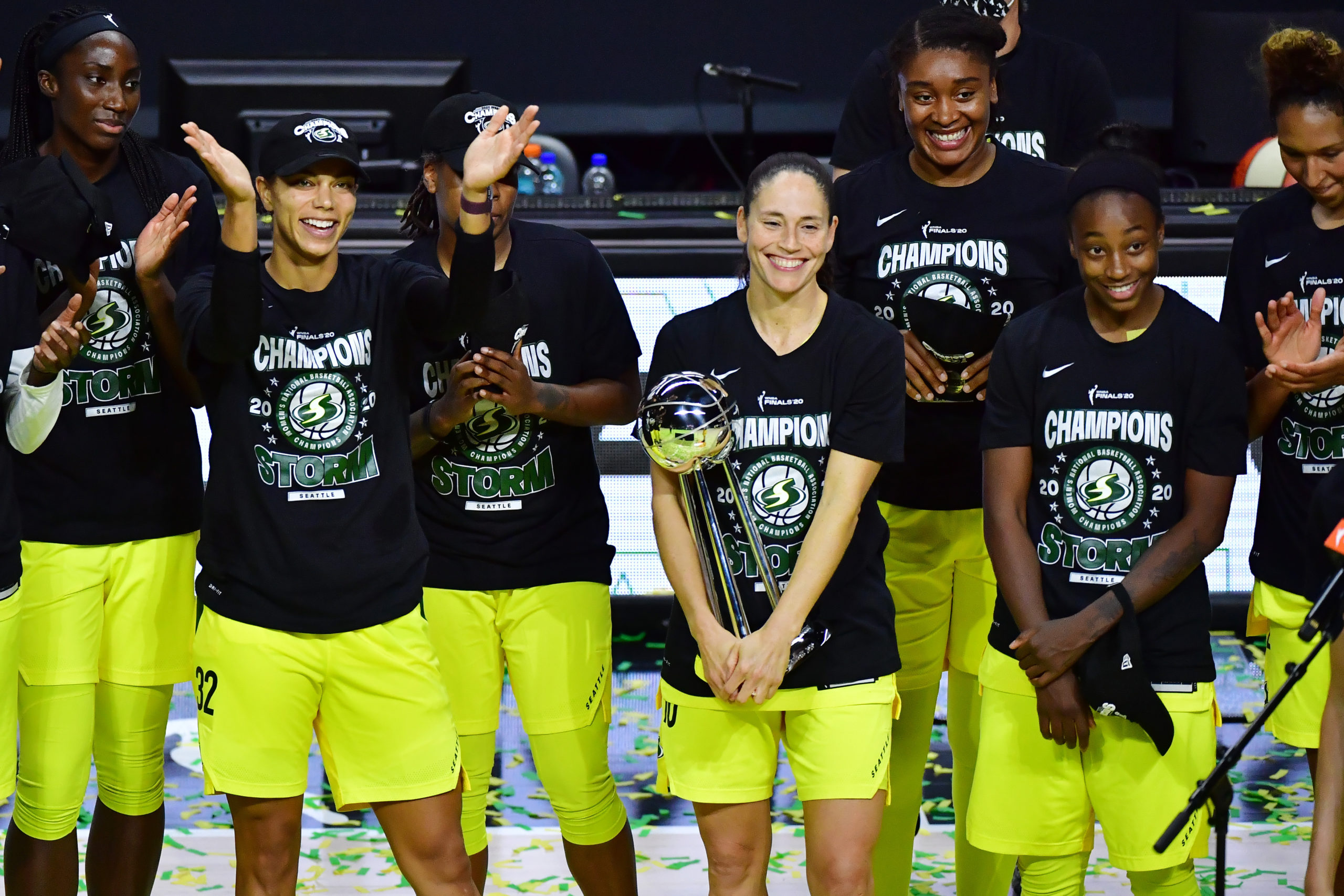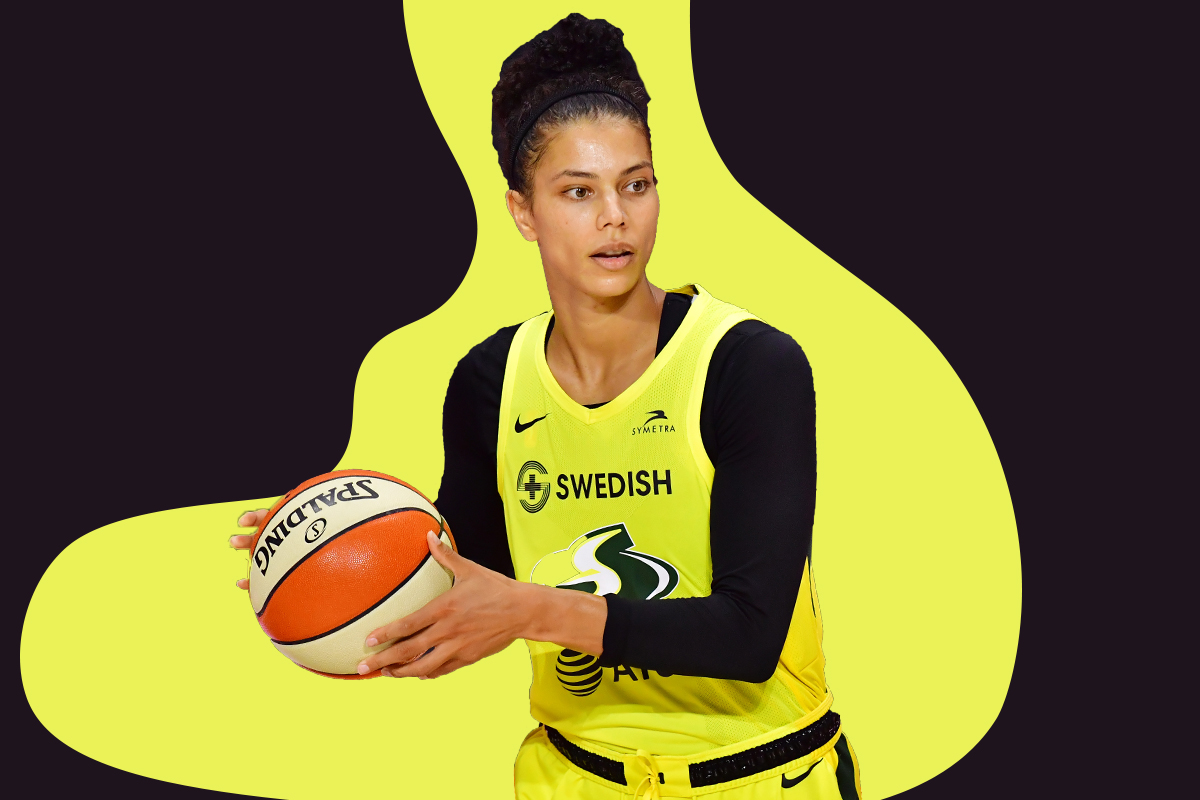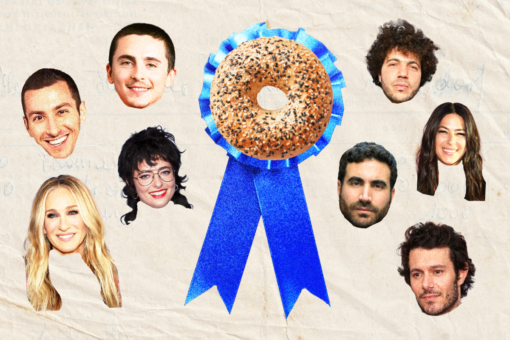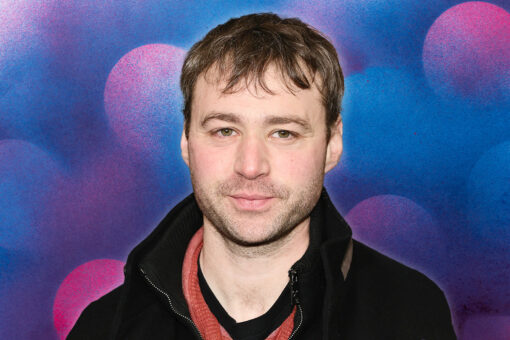Last week, American Jews celebrated a major athletic achievement: Israeli-American Sue Bird won her fourth WNBA title with the Seattle Storm. But it wasn’t just Bird we had to celebrate; she helped power the Storm to victory alongside her teammate, Black Jewish starting forward Alysha Clark.
Bird has said teammate Clark is someone who does what no one else on their roster can do: “She has to guard the other team’s best player night in and night out but simultaneously, we count on her to score.” Bird called Clark the best defender in the WNBA, and coaches across the league agreed, voting her unanimously to the 2020 WNBA All-Defensive First Team. WNBA legend Diana Taurasi complemented Clark’s defensive presence, calling her “a little bodyguard” who follows her wherever she goes. And while being a defensive powerhouse, in 2020, Clark put forth her best offensive season while in the league. Case in point: She made over 50 percent of her three point shots and averaged scoring in double digits for the first time this year.

On the court, Clark is a key support to her Storm teammates. Whether it’s helping a teammate defend a player who towers five inches over her 5’11” frame, reaching for a rebound off a teammate’s miss, or taking the open three while Bird or Breanna Stewart are fighting through the opposing defense, Clark is a helper.
But alongside her moxie, the way Clark plays reflects her nature off the court. She has run a toy drive for Seattle Children’s Hospital for six consecutive years, has been outspoken in raising awareness surrounding nationwide voter suppression, and consistently advocates for Black women and girls.
After winning the WNBA championship, she dedicated the Storm’s win to Black women in America.
“This one is special just because of the reason that we were here in the beginning,” Clark said. “We wanted to bring awareness and give a voice to the Black women who are often forgotten in this country. We are often overlooked and often unheard, and this championship was for them, for us. It’s a championship for little Black girls and Black women across this country, honestly… I hope each and every one of them feel just as victorious in this moment as I do.”
Born in Denver, Colorado, Clark moved around a lot growing up. Before settling in Tennessee and attending Mt. Juliet High School, she was always the new kid “trying to find her way and gain a sense of acceptance.” Basketball wasn’t even her first sport — she initially picked it up as a method to stay in shape in between volleyball and track seasons. But by her junior year, basketball took center stage.
She went on to play college ball at Belmont University, and then Middle Tennessee State. At both schools, Clark was named player of the year every year she played. She was the first college basketball player *ever* to earn player of the year in two different athletic conferences. Following her historic college career, she entered the WNBA draft and was picked 17th by the San Antonio Stars. But, Clark couldn’t crack a San Antonio roster, failing to make the cut during training camp two years in a row.
What was Clark to do next? She decided to play overseas in Israel for Hapoel Rishon LeZion, where she immediately made a huge impact. Clark was named domestic player of the year and made it to the All-Israeli First Team.
It was a car ride in 2011 that changed her life. Her teammate Rivka Ross lamented the fact she didn’t speak Hebrew, and Clark replied that she actually knew how to count to 10 in the language.
“My grandparents speak Hebrew,” she told Ross. Clark explained that her maternal grandparents were Jewish. Ross was stunned; she informed Clark that according to Jewish law, that meant she is also Jewish. But Clark wasn’t raised Jewish, and had attended church regularly with her family.
“It was as if she didn’t get the significance of it,” Ross told Haaretz. “She knew it was in her genes, but she didn’t know that it was worth something.” Soon, Clark set out to learn more about her Jewish identity, eventually obtaining Israeli citizenship to continue playing professionally there. She played for three different Israeli teams between 2010 and 2016.
Yet even after she stopped playing in the Israeli league, Clark kept close ties to the country.
In August 2016, during the WNBA’s Olympic break, she flew back over to Israel and made an appearance at Amar’e Stoudemire’s basketball peace camp for children.
Amar'e Peace Camp. African American, Jewish, Muslim & Palestinian kids came together for their❤️of🏀 #Unity #MoreLove pic.twitter.com/PqYh6diMfH
— Alysha Clark (@Alysha_Clark) August 8, 2016
For Clark, playing in Israel for five years opened her eyes to her family’s history. She became motivated to go through her grandfather’s records and learn where exactly her Jewish heritage came from. When she played her overseas season in Poland, she was able to trace where a distant relative had lived.
“My mom, when she came to visit me when I played in Poland, we went to Budapest and we got to go where her great uncle used to live — which is now an Armani store,” Clark told Alma. “So just to be able to make those connections and share that with my family has been super special.”
Clark also fell in love with Jewish culture. She appreciated the intimacy of a Shabbat dinner. “Shabbat dinner where three, four generations are getting together every Friday to have dinner and to spend quality time together was something that was really special to me and that’s something that going forward, and even now since being back home, I’ve been able to do,” she said. “Having more family dinners, getting together with friends more often — disconnecting from electronics just to spend that time together — has been something that has really stuck with me.”
As the game clock ticked down millisecond by millisecond in the final moments of game three of the finals, Clark turned to Bird, squeezed her tight and didn’t let go. With green and yellow confetti raining on all, Clark picked her head up, screamed to the ceiling and then brought her fingers to her eyes, wiping away some tears.
While Clark enters the WNBA offseason as a free agent and is unsure if she’ll return to play her overseas season in France, right now she’s taking it one moment at a time. “Woke up in my own bed today…a TWO TIME WNBA CHAMPION!,” she tweeted a few days after winning her second championship in three years.“Like what!!!? Ahhhhh! Still doesn’t feel real! Feels GREAT to be home though.”
Image of Alysha Clark in header by Julio Aguilar/Getty Images.



